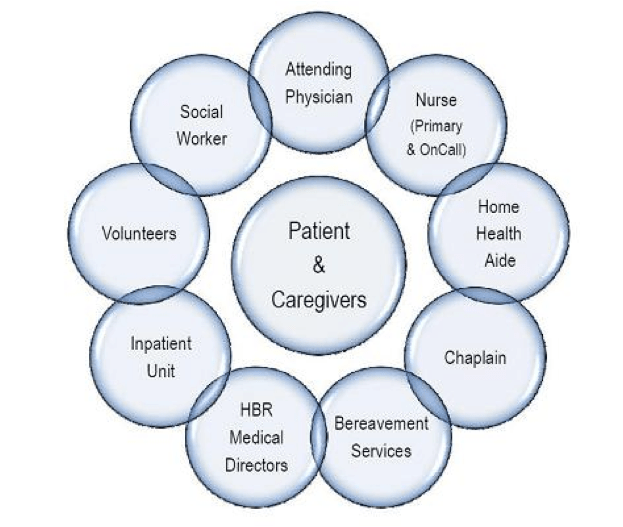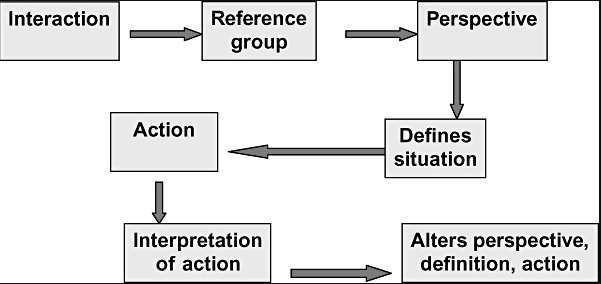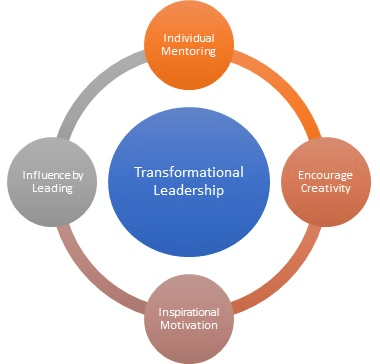Perspectives In Health And Social Care Management Assignment Sample
Gain insights into key perspectives and management strategies in health and social care with this expert assignment sample from Native Assignment Help UK.
Ph.D. Experts For Best Assistance
Plagiarism Free Content
AI Free Content
Introduction: Perspectives In Health And Social Care Management
A brief account of the healthcare and social care perspectives is described in the section to achieve the outcomes of the mapping areas of healthcare services. On the other hand, it is also essential to define the concepts of “leadership and management activities in health and social care". However, the key attitudes of healthcare are overall health and medicine. In that case, the medicinal approach refers to preventing or diagnosing, or treating the health of the patients in different dimensions. Recently, different social institution involves promoting the overall health of the people.
Healthcare institutions provide various services to solve the problems of individual patient health. In terms of the sociological explanations to cure the entire health the major perspectives of the study are to provide information and share a comprehensive understanding of how to approach social health.
Overloaded with assignments? Get Assignment Help Online from UK specialists who ensure top-notch, original work. Save time, reduce stress, and meet university standards with our affordable service. Ready to succeed? Request a free quote now and transform your academic performance!
Perspectives of health and social care organizations
The Outline of the two conceptual perspectives of “health and social care organisations (HASCO)” helps to understand the important areas of physical as well as mental health. In a growing population, the effect of health perspectives on different behavioural changes of the patients is based on value-based healthcare, evidence-based medicine, and appropriate care of the patients (Hoel et al., 2021).
On the other hand, the interdisciplinary perspective of the researchers is to raise issues on the health behaviours of individuals, develop a policy-making state on healthcare services, and evaluate mortality statistics and many more (Garnelo et al., 2020). The perspective of the study is to create a potential value of the “patient-reported outcome measure (PROM)” in a wide range for long-term purposes. However, several domains of the PROM are used to identify social participation in life to empower supportive services. Individual patient care services can be improved by managing more involvement of the patient and social gatherings.

Figure 1: Practitioners associated with interdisciplinary perspective
Another theoretical perspective of functionalism is to assume effective health and better medical services for the sustainable functioning of society. In order to assume legitimacy it is required to perceive the performance of the patient by their sick role in normal obligations. In that case to develop a healthy relationship between the patient and the healthcare professionals it is required to provide instructions to the patients to follow the guidelines of the health instructions.
In contrast, the conflictual perspectives of the theoretical framework define the characteristics of social inequality by evaluating the “quality of health and health care services”.
People belong from underprivileged social backgrounds are more preferably become sick than other people. However, they also obtain inadequate services in health care. Therefore to increase the of that underprivileged persons it is required to focus on better social and medicinal practices to improve the social as well as medical problems of society.

Figure 2: Principles of symbolic interaction perspectives
The symbolic interaction perspectives of healthcare services explain the illness's overall health. It helps to construct a social framework for improving both physical and mental conditions (Utzumi et al. 2018). Therefore, the healthcare professional manages the adverse situation in the healthcare services of the patient by applying their medical knowledge as well as improving their administrative services.
On the other hand, the functional perspectives of the HASCO emphasize the ability of effective health and medical care facilities. However, the role of the individual in society is to perform in an effective way regarding the stability of unhealthy impairments. Especially focusing on the premature death of an individual as it prevents a person to take responsibility for society thus negative return came out to society. Dysfunctional or poor healthcare services create difficulty in dealing with a healthy life.
Therefore criticism creates in society due to impairing healthcare services. The conflictual approach of the study emphasizes the quality of healthcare services (HCS) all over the world. However, the HCS differs greatly across the world. Along with this, inequities in society create a negative impact on the HCS by developing a boundary among people. The disadvantage of underprivileged social backgrounds people is they face more difficulty in HCS.
Two types of leadership and management activities in health and social care
Transformational leadership and management
The leadership style defines the influence as well as the motivation of a leader to other people. This "transformational leadership style (TLS)” helps to motivate the professionals to improve their roles and responsibilities to perform better in an expected way. It helps in conflict resolution to achieve the goals of the HASCO. The leadership approach creates positive changes in society as well as individual life. At the end of the goals, it helps to develop positive values in the followers (Yamin, 2020).
Therefore the followers transform to leaders as an impact of the positive values.
However, the key objectives of transformational leadership are based on different factors such as inspirational motivation, idealized influence, individual consideration, and intellectual stimulation (Subanidja et al., 2020). Each and every factor of the TLS helps the managers to explain the leadership approaches in the HCS.
The different characteristics of transformational managers or leaders are to open up with creative thinking with the professionals. They achieve the capability of commitment, Better Listening ability, and excellent tolerance levels. They have a better capability of taking responsibility for social as well as healthcare institutions (Alavi et al., 2021). They motivate inspiring participation in social care.

Figure 3: Model of transformational leadership and management style
|
Pros |
Cons |
|
The advantages of transformational managers are they promote morality and values through effective communication skills. |
The disadvantages of the TLS as it create a risk to lead or avoid certain guidelines and protocols of the healthcare organization. |
|
Leaders provide facilities as well as give freedom to the professionals (Subanidja et al., 2020). |
When transformational leaders develop the outcomes of the HCS in a negative way, it creates risk for them as well as for society. As they have a lower level of trust in the employee (Saleh et al., 2018). |
|
It mainly focuses on the empowerment of the individual employee by developing their leadership approaches |
the Disadvantages of the leadership style are that sometimes cannot fulfil the criteria of employee satisfaction and fail to improve a healthy relationship with the employee |
|
Managers help to encourage their professionals or groups in an effective way to achieve their target and make them more interactive and open up for sharing their ideas and skills. |
The managers do not always follow the rules to agree with the consistent feedback of the professionals (Saleh et al., 2018). |
|
It develops a higher level of productivity through the flexible, moral and fair behaviour of the manager (Chen and Shao 2022). |
Individuals lose their focus to achieve the goal of a lower level of communication with the employee. |
Table 1: Pros and Cons of transformational leadership and management style
Autocratic leadership and management
At crucial times autocratic leadership style (ALS) helps to take quick and effective decisions in the HASCO.
.png)
Figure 4: the model of autocratic leadership and management style
|
Pros |
Cons |
|
Autocratic leaders are target-oriented to achieve their goals (Caillier, 2020). |
The managers need to be more productive for the HASCO. |
|
Share ideas and different types of skills to improve the tasks |
It is required to involve more with the employee (Gaffney et al., 2018). |
|
Share ownership approach on the involvement of the task. |
Need to improve self-management as well as self-assessment |
Table 2: Pros and Cons of autocratic leadership and management style
Conclusion
In order to analyze the overview of the study it has been stated that it is required to focus on the major approaches to improve the HASCO. According to my perspective, the Sociological point of view on the HCS is to develop the physical as well as the mental health of the individual people. Along with this develop medicinal care to suggest the multidimensional concept of health. Although among many dimensions of the HCS major elements are Medicine, Health and Health care.
According to my point of view, the Functionalist Approach of the healthcare institution is based on the ability of society to improve the facilities of healthcare services. The role of the people in serving their execution to society is to represent the stability of the HCS by effective functioning methods or ways. Therefore no one can suffer from inadequate services or go through unexpected death. However, the unhealthy role of the individual in society creates problems for underprivileged people, and they do not get the proper services to treat their entire health system.
From my perspective, the Conflict Approach of the social institution emphasizes inequality in the service of healthcare. The previous studies denote that the quality of health as well as caring for healthiness differ from each other and vary across the world. Social inequities, including economic status, social class, gender lines, and ethnicity, create a negative impact on the HASCO. Healthcare professionals sometimes treat their patients as per their social status. Therefore, it creates problems for society in a dramatic and adverse way.
On the other hand, I believe that capable professionals need to focus on health problems to treat people in an effective way. However, to judge the negative side of the study, it has been observed that healthcare professionals mainly focus on the financial status of the patients, not on the genuine concerns.
Reference
Alavi, S.T., Rabah, S. and Jones, A., 2021. STUDYING TRANSACTIONAL AND TRANSFORMATIONAL LEADER AND LEADERSHIP IN GOVERNMENT AND PRIVATE ORGANIZATIONS IN UAE. International Journal of Management (IJM), 12(4).
AlOwais, T.M., 2019. Influence of transformational leadership style on global competitive advantage through innovation and knowledge. Modern Applied Science, 13(1), pp.183-191.
Caillier, J.G., 2020. Testing the influence of autocratic leadership, democratic leadership, and public service motivation on citizen ratings of an agency head’s performance. Public Performance & Management Review, 43(4), pp.918-941.
Chen, S.C. and Shao, J., 2022. Feminine traits improve transformational leadership advantage: investigation of leaders’ gender traits, sex and their joint impacts on employee contextual performance. Gender in Management: An International Journal.
Gaffney, A.M., Rast III, D.E. and Hogg, M.A., 2018. Uncertainty and influence: The advantages (and disadvantages) of being atypical. Journal of Social Issues, 74(1), pp.20-35.
Garnelo, L., Parente, R.C.P., Puchiarelli, M.L.R., Correia, P.C., Torres, M.V. and Herkrath, F.J., 2020. Barriers to access and organization of primary health care services for rural riverside populations in the Amazon. International journal for equity in health, 19(1), pp.1-14.
Harms, P.D., Wood, D., Landay, K., Lester, P.B. and Lester, G.V., 2018. Autocratic leaders and authoritarian followers revisited: A review and agenda for the future. The Leadership Quarterly, 29(1), pp.105-122.
Hoel, K.A., Rokstad, A.M.M., Feiring, I.H., Lichtwarck, B., Selbæk, G. and Bergh, S., 2021. Staff's perspectives on the organization of home care services to people with dementia—A qualitative study. Nursing Open, 8(4), pp.1797-1804.
Saleh, R.M.M., Nusari, M., Ameen, A. and Alrajawy, I., 2018. Leadership in the organization: A conceptual review. International Journal of Management and Human Science (IJMHS), 2(4), pp.52-59.
Subanidja, S., Legowo, M.B., Sorongan, F.A. and Wahyudi, E., 2020. The Choice of Collaborating with Fintech Entities for Competitive Advantage through Leadership Styles. Scientific Papers of the University of Pardubice. Series D, Faculty of Economics & Administration, 28(3).
Utzumi, F.C., Lacerda, M.R., Bernardino, E., Gomes, I.M., Aued, G.K. and Sousa, S.M.D., 2018. Continuity of care and the symbolic interactionism: a possible understanding. Texto & Contexto-Enfermagem, 27(2).
Yamin, M., 2020. Examining the role of transformational leadership and entrepreneurial orientation on employee retention with moderating role of competitive advantage. Management Science Letters, 10(2), pp.313-326.
Go Through the Best and FREE Samples Written by Our Academic Experts!
Native Assignment Help. (2026). Retrieved from:
https://www.nativeassignmenthelp.co.uk/perspectives-in-health-and-social-care-management-assignment-sample-18764
Native Assignment Help, (2026),
https://www.nativeassignmenthelp.co.uk/perspectives-in-health-and-social-care-management-assignment-sample-18764
Native Assignment Help (2026) [Online]. Retrieved from:
https://www.nativeassignmenthelp.co.uk/perspectives-in-health-and-social-care-management-assignment-sample-18764
Native Assignment Help. (Native Assignment Help, 2026)
https://www.nativeassignmenthelp.co.uk/perspectives-in-health-and-social-care-management-assignment-sample-18764
- FreeDownload - 43 TimesReactor Design For Propane Dehydrogenation
Introduction The dehydrogenation of propane to propene is a major industrial...View or download
- FreeDownload - 35 TimesUnit 4: Leadership and Management Assignment Sample
Introduction: Leadership and Management Assignment This report discovers the...View or download
- FreeDownload - 43 TimesMind Map Environmental Pedagogy Assignment
Fire/light In Environment Pedagogy: Learning Involvements For 3-5 Year...View or download
- FreeDownload - 45 TimesBeing Healthy In A Modern World Assignment
Introduction - Being Healthy In A Modern World Definition of Health The...View or download
- FreeDownload - 44 TimesThe Boy with the Topknot Case Study SWC030 Case Study Assignment
Introduction: The Boy with the Top Knot Case Study The Boy with the...View or download
- FreeDownload - 41 TimesEssentials of Medical Education Assignment Sample
Main Body The main body outlines a structured teaching session on the use of...View or download
-
100% Confidential
Your personal details and order information are kept completely private with our strict confidentiality policy.
-
On-Time Delivery
Receive your assignment exactly within the promised deadline—no delays, ever.
-
Native British Writers
Get your work crafted by highly-skilled native UK writers with strong academic expertise.
-
A+ Quality Assignments
We deliver top-notch, well-researched, and perfectly structured assignments to help you secure the highest grades.



